Kate Bowler: This is Everything Happens with me, Kate Bowler. Do you ever look back in your childhood and go, wait, that didn’t happen, did it? Like, no one would have put me in that situation, right? Where were the adults? Who is in charge here? I think it’s one of the strangest things about, like, hitting a certain age. I don’t know if it’s your early 20s for everyone, but there is a strange moment when you look back and you think: that can’t be right. And you try to piece together who you were and what happened. Today we’re going to talk about that feeling. When you might look back at a life that may or may not have had the protections or emotional support or trusted adults in charge, how do you make sense of who you were and who you are now because of it? With a lot of compassion and honesty. Maybe for yourself, maybe for other people. Today’s guest is someone I trust to talk about this topic with so much care. She’s…gosh, you’re going to love how careful and nuanced she is. Okay, but before I introduce her, we’re going to take a quick break to tell you about some of the sponsors of the show who make everything happen. We’ll be right back.
Kate Bowler: Sarah Polley is the Academy Award-winning filmmaker of Women Talking, which is one of the most stunning movies I have ever seen. Sarah began acting as a child. She stars in many productions in film and television, but this book, Run Toward the Danger, was a number-one bestseller. Winner of the 2022 Toronto Book Awards, and I feel crazy, I am so happy to be here with you right now. Sarah, thank you so much for doing this
Sarah Polley: Thank you. I love your podcast. I’m really happy to be here.
Kate: That’s nice. As a storyteller, it must have been a very strange thing to begin to try to kind of rewind the tape of your own thinking when you thought about, like, the first anchor point that, that like, the gravity that laid wait for all the other stories. Would you say the first major turning point was the death of your mom?
Sarah: I would say. I mean, it became a big sort of touchstone within the book. I think that the thing that I got really compelled by was that in all of these essays, I was talking about how my current experience was actually changing my relationship to my memories, or creating new memories, or shifting the actual substance of the memories themselves. So I’d been in psychoanalysis since I was 20. I’m 45 now. It’s basically my whole adult life. I’m really aware of how childhood memories inform the way we walk through our world, and how our behavior is dictated by how the unconscious is, you know, rooted in these early experiences that we may or may not have a handle on. I’ve always been really conscious of that, but I was really not conscious of how, if we’re lucky enough to be presented with a current-day experience in our present life that echoes or is reminiscent or resonant somehow with those early experiences, that being able to walk through that in a different way, with agency and with some wisdom, and maybe hopefully with some help and support, can actually shift the way we carry those early memories. And that was new for me, the idea that present life could actually impact the past as much as, and as importantly as the past was influencing the present.
Kate: For people who get stuck in things, I’m just thinking that must feel… especially when things are really hard and certain very sticky experiences, then they kind of get stuck in a loop. Returning to it with, with agency must feel like a…and that’s, it’s how you write it, and it’s how it has been a privilege to get to know you like that is, you can feel it kind of move as a spiral, like you take us back and then you’re taking us somewhere new. I knew you, like, I’m sure many other people knew you, in this really, you know, flat way. I knew you as this child star who I grew up watching. And the story, I mean. So for people who are not Canadian and might…. Would you mind explaining how people might typically know you?
Sarah: Sure. Yeah. So I was in this, TV show when I was a kid called Road to Avonlea, which was based on the Lucy Maud Montgomery book, sort of the sort of Anne of Green Gables spinoff, basically. And the show was really popular in Canada. It was like, you know, I think it was rated higher than Hockey Night in Canada at one point. Like it was something that families did together every Sunday night. They sat and watched this very family-friendly show together. And so I was drawn that way from about the ages of nine to about 14 or 15. And then I was, you know, I thought I was going to quit acting. I became a political activist for a while. I knew I wanted to be a writer. I knew I wanted to do something political. And then I just, as a sort of little moment of break from activism—I was involved with a lot of anti-poverty organizations in Toronto—I did a part in Adam McGowan’s film, This What You’re After, and I thought I would do that and then never act again. And then that led to a whole kind of adult acting career. And then I ended up writing and directing my own short films and then directed a bunch of movies.
Kate: I mean…
Sarah: Not that many, actually.
Kate: To be fair, a few movies.
Sarah: There, I wrapped it up.
Kate: Wow. You did the whole thing!
Sarah: That’s all I got.
Kate: Yeah, because the little, like the little you, the whole picture of it is so adorable. But fundamentally, those tales are unbelievably sad. Your little character is, like, constantly going through sorrow and hardship as… It was very sweet and it was very accessible. So looking back on that kid, what do you wish people had done or known about what she needed?
Sarah: That’s interesting. I mean, so, yeah, I mean, I’ve told the story of, you know, what it was from the outside. From the inside, it was a very difficult, you know, 5 or 6 years for me. My mum died during that time. I was, living, with my dad, who was not mentally well. And so the house was squalor. I was working extremely long hours on Road to Avonlea. I was carrying a TV show while trying to excel at school enough that I could one day go into politics and writing. I wanted to go to Oxford, and I was, I would say, I was neglected for sure at home. And then I had enormous work pressure. Yeah. So yeah, those were really, really tricky years. And the protections for kids on set, which still aren’t where I would like them to be, were really, really, lacking at that time. So I do think there were people at every stage of my life and, you know, there’s been a fair share of trauma, there’s always been some person who stepped out of the woodwork, even it was just to get me from A to B or B to C and then step back. And so it wasn’t like there was no one. I mean, I had a, for a few years are really, supportive on-set tutor. Some of the actors, some of the crew members would take me home every now and then on weekends because they could see there was a gap there. I mean, what would I say to people that she needed? I’m not sure it would be anything anyone could really provide. Like, what I would have loved would be to have a consistent, safe adult who was competent and who could take care of my daily needs as well as my emotional needs. But, that’s something a lot of us want and yeah, don’t ever get. I mean, I had that in my mom for 11 years and some people don’t get it ever. So I’ve started to sort of think of it differently. And I don’t love toxic positive thinking, like I’ve never been one of those people who wants to look at the bright side. I kind of want to go into the dirt, and if I find a glimmer of light, great, I’ll go towards it. But I do feel genuinely now from a very real place, that that sense that I had, that I got ripped off, that my mom died when I was 11, has really been replaced by a very deep knowledge that most people don’t get an adult when they’re a kid who thinks they are great, who, you know, looks at them with a sense of wonder and excitement and wants to know about their inner world and shows physical affection easily. Like, these are really rare qualities, and that’s devastating to me to think of that, that so many people I know haven’t had a whisper of that. So I do think that gave me a really strong foundation, like the health of that relationship with my mum. I think that like that 11 years could really carry me through a lot of trauma that was to come, a lot of neglect that was to come, a lot of exploitation that was to come. I think it gave me something to kind of hang on to.
Kate: Yeah. You write really compassionately about your dad, and those are really tender stories. I mean, I’ve… I’m just thinking about how complicated it is for any of us to describe our parents honestly without immediately becoming, you know, like boxing both sides. And…
Sarah: That’s a good way of putting it. I like that.
Kate: How did you feel like was the most, I mean, you’ve got some gorgeous descriptions of him. Your dad was really charming, and I was, like, extremely lovable in so many ways. And yet, I’m sure as a mom today, you look back and you’re like, that’s not enough to take care of a kid. Yeah. Like when you say squalor, you really mean…
Sarah: Yeah. No, it was extreme. I mean, just the number of jars I opened that had maggots in it or mice everywhere, or, you know, garbage not being taken out forever. I don’t think the sheets were changed for, you know, 6 or 7 years. Like, it really was extreme. He was someone who was a man of his generation, who was taken care of from the time he was born, all through his adult life by women like, I don’t think for many years he knew how to make himself a cup of tea or boil an egg. Like truly, like, the level of incompetence was wild, but I don’t know actually that unusual. So there was that. And that’s not to forgive or excuse it. I mean, he was watching my mom struggling to do every single domestic thing, all of the childcare and work full time and wasn’t really lifting a finger to help. So I don’t want to excuse it too much, except that that was pretty horrible. Which is, you know, its own conversation. I think he was probably somewhere on the spectrum of autism. Like, I don’t think he felt the same way that I do or that you might? Like, I think that he had a very magnanimous, beautiful response to finding out that I was not his biological daughter late in life. And that’s how I saw it, and that’s how I experienced it. And it was, for all intents and purposes, that. I think it was also that he actually just didn’t experience the same emotions you or I might in that thing. So he actually had this kind of ability to look at it rationally, to create space for people to make it not about him, because I don’t think he was caught up in the same kind of morass of betrayal or hurt or love, you know, betrayed that that you or I might get caught up. And so it gave him an ability to be spacious in a way that was really beautiful. And certainly, I had like, an intellectual and, a bond with him that had to do with ideas and conversations. That was thrilling to me at that age. That was so inspiring and exciting.
Kate: He loved you to read, he wanted to engage with you.
Sarah: Yeah, we would stay up till like, midnight talking about books, like it was an amazing thing. And it there was also this other stuff, which is that he really didn’t know how to take care of a kid. He didn’t know how to make sure I felt safe and taken care of and nurtured, like he didn’t know how to do those things. He’d do all these other things, he just couldn’t do those things. So I, I truly believe he did the best he could, and it wasn’t enough to make me feel cared for, nurtured. But it did give me a whole bunch of other stuff. And again, not to like, try to spin it positive, but both are true as you like, you know. So it’s like it’s it was really, really awful and really, really wonderful to be his kid. And I just think what was interesting about writing about him was realizing, like, I could write the story of having the worst father in the world, and I could write a story about having the best father in the world, and they were equally true. Those are both true stories, and they both land in me in a way that feels true. Yeah, and I maybe didn’t always feel like that. And maybe it was important at times to feel really angry about it. And there were times it was really important to idealize him. And I do feel at this moment I can kind of live with. Yeah, he was the worst out in the world. He was the best in the world.
Kate: It reminds me of, Tara Westover has this beautiful book, right, about her experience.
Sarah: I love that book.
Kate: Trying to teach herself out of like a pretty devastating family situation, and in which she also feels like it made her this like, I don’t know if she’d say gritty, but this really, you know, she’s got this iron in her that’s so incredible. And, but in talking about her parents, we were talking about like, how you land on an argument about your family, especially when it’s been pretty devastating in a lot of ways. But that’s so that’s what she said. She said my parents did their best and their best was devastating. Yeah. And like I, I loved I loved that framing of it because then there’s a there’s a grace in it, but there’s grace for both parts.
Sarah: And there’s an acknowledgment of how it made you suffer, yeah.
Kate: Which is, because there’s such an I mean, there’s such an eerie quality to the way that your dad would describe his relationship with you. And like you, you have so much compassion for the the uncomfortableness of his gifts, and also the position it put you in as being like a child adult at all times.
Sarah: Yeah, and he was really clear about that. Like he thought of me as a friend, not a kid. And like, you know, he didn’t want to be a parent. He wanted to be my friend. And so he was like super clear about that. And at that age, that sounds great, actually. Do you know what I mean? Like, it sounds awesome. That’s what my kids would want me to say. Probably because it’s annoying having parents. It’s, it’s like it’s limiting in some way. But then you kind of get older and go, oh, but those limits feel like safety. Those limits feel like home. Those limits can feel like nurturing. Not to say that everyone has to be strict, but just that. Yeah, but there’s someone there overseeing something. Yeah.
Kate: I wondered if we could talk about the safety thing for a second, because, for a long second. Because, I mean, of course, very few people are child actors. But all of us have experiences when we were trying to figure out the degree to which the boundaries of the world expanded with us. Or if they were just too big and we were left without enough. And you have had these very difficult, I mean, very difficult situations where you were little with an insane amount of I’m just when I watched as a child, the movie The Adventures of Baron Von, which an I mean, it was. For people who haven’t seen the movie, if you wouldn’t mind describing, like, it’s this wild carnival, you have an experience with a Monty Python-esque and literal director
Sarah: Yeah. So it was directed by Terry Gilliam. It was, I did it when I was 8 or 8 and 9 years old, and it was this legendary production because it went like wildly over budget. I think at the time it was like maybe the most expensive movie ever made. And it was like this disaster that went like many months. I think it went months overall, though, I’m not clear on that. But we shut down for a period of time. There were also a lot of experiences on that film that I found terrifying, where explosives went off very close to me. That many people who were involved would say it was very, very unsafe. Yeah, I would say was pretty traumatic. Like I had explosives going off near me a lot. I was in freezing cold water for long periods of time, so physically felt unsafe. I had a couple of visits to the hospital. I think a book was written about it, just like that. Absolute disaster and trauma of it for so many people. So that was like an early experience of being around 8 or 9. And it was around the time my mum was first getting sick and diagnosed with cancer. And so she was with me at first. And then my dad was and yeah, I did not feel protected by my parents or anybody else on that production, which was just so wildly out of control again, now that I’m older and I kind of look around a film set as an adult and go…when you’re a parent on a set and there’s this giant machine of hundreds of people working towards something. Maybe there’s a director you admired forever, as was the case with my parents and Terry Gilliam, are you going to be the person to, like, stand up in front of hundreds of people knowing how much money and like everything is on the line and go, I’m shutting this down. I feel like my kid is unsafe. I would hope I would do that, in fact, I’m sure I would based on my experience, but I actually do get how difficult that would be and how intimidating that would be, and how you wouldn’t want to be the person shutting down in a huge work environment that you maybe didn’t know as well as everyone else. But the truth is, I was not protected, someone didn’t stand out in front of me, someone didn’t prioritize the safety of their kid above that uncomfortable moment. And it it cost me a lot. And it, you know, cost my relationship with my parents, I think quite a lot as well.
Kate: It sounds like that was an incredibly, you going back and figuring out the layers of like, well, who could have said something and like, was it really all that scary? And like, just like learning to trust yourself and then who to assign agency to as you look back to a story? That’s a really intense, emotional…every metaphor is bad. Journey. Work. But like, like that requires, I never really know. Always when I’m looking back at something, there’s always a part of me that doesn’t really believe.
Sarah: I know. This is, so this is what plagues me, is like this idea of how do we believe our own versions of things if we’re someone who is—and I think it’s a great quality to be questioning ourselves and questioning our impulses and our responses and the way we’ve interpreted things, like, I kind of thrive on that process. The problem is, there are a lot of people in this world who don’t question their versions. They’re more than happy for you to adopt theirs. And so you’re a bit of a sitting duck, and I don’t want to change the way I live. Like, I want to keep walking around with an open heart and a curious mind and be willing to question myself, but it’s very vulnerable, when it’s in other people’s interest for you to remember things the way they would have you remember them. And not everyone is in this process at this moment of questioning themselves. So I’m finding that more and more of just, you know, that tension is very interesting to me. Like wanting to remain curious and turn things over and also having the confidence to go, it’s enough for me to remember this and have experienced it this way, and be clear on its impact on me without always needing a third party to verify. Like in the stories I tell in this book, I have third parties verifying it, and that’s why I believe my own story. That’s problematic. You know, like in the story, of telling the story of Baron Munchausen, you know, an actor, Eric Idle, who was in the film, suddenly reached out on Twitter about an article I’d written in the past, about my experience on Baron Munchausen and said, you know, she was right. She was in danger many, many times. It’s incredible no one died. She’s, you know, telling the truth. And the truth is, like, even though I talked about it in interviews and, you know, told the story many times, I didn’t really believe my own version till he told me it had happened. And that’s, and I think a lot of us have that, like, even if we can’t admit it, this deep questioning of ourselves and our own handle, especially when it comes to like having been wronged in some way.
Kate: Totally. I like, too, the attention that you give to what made that other person feel so believable in the first place? Like, is it because they were, you know, older, famous, a man? What gave them that inherent credibility? Because I would find if I redo a story like I’m thinking, I spent a really long time really overwhelmed by the experience I’ve had getting medical care. And I couldn’t entirely reconstruct when I should have said something. Would things have been different? But like..but that question of like, what made that other person so believable in the first place to me and other people? Why do I want so much for that validation, I think is a really like, it was a painful, but useful device in my mind to be like, wait, no, he was wearing a doctor’s coat. Oh, okay. No, I was in this certain context. Oh, I felt, right? I felt really small and just kind of like adding back the kind of, like, color and flavor to it made me realize, like, oh, that’s why it was too hard to believe myself inherently.
Sarah: Yeah, absolutely. And I think in the context of, like, the film industry or the arts, we’ve all kind of grown up with this idea of the mad genius, which is the title of that essay in the book, the idea that, you know, erratic behavior that’s reckless and maybe isn’t considerate of other people is actually a symptom of genius. You know, it’s not just something you accept along with genius. It’s a symptom, someone might be really, really great, you know, and really brilliant at what they do. And so I think there was some sense that there was a cult of personality around Terry Gilliam, you know, the the more erratic he was, the crazier he was, the more he wasn’t caring about other people’s safety and well-being, the more of a genius he must be. And I hope, and I feel we are, and I hope it continues, that there is a move away from that, and an acknowledgment that very decent people who are very deeply considerate about other people’s well-being have also made great work. And it’s not necessary. Like, and that we, we do need to stop propping up and supporting people who can’t take a minute, especially in their leadership role, to worry about how people are doing. I mean, I think that’s part of the job if you have any kind of power.
Kate: When you think about an episode in your life, and then you look at all the layers and you’re asking, I mean, was it your responsibility? Like, I wasn’t safe. Was that you? And like, what did you think about me? Did you not think that I was…? And like you kind of, and, and then like the people horizontal to you or like the people in your family, like why was I not safe? Like why did this, why did this happen? And they feel really painful, but kind of it gets to like a beautiful thing. Because if you land on the, like, if you land in the right place, then you land in, I don’t know, some kind of living in reality about what constraints people thought they were living in. But then kind of maybe a more beautiful place for yourself where you’re like, well, the whole time I was worth. I wasn’t protected and was entirely worth protecting.
Sarah: Yeah. It’s an amazing moment and it’s one you kind of have to have over and over again, I think. You know? like, I feel like I kind of like, forget that and then come back to it and then forget it and then come back to it. And it’s hard to sort of drill that into yourself where it lives there in a permanent way, I think. I think it does take like a practice and reminders and…
Kate: Yeah. One of the things that prevented. I mean, maybe not prevented, but like, you had an invisible illness too, I mean, not visible to many people. That also was kind of like a thread running through your life about believability. Like, do you believe your own pain? You had, tell me a bit about the health issues you had as a child, how you tried to manage that in such a high-stress situation?
Sarah: Yeah. I mean, so the first thing that happened to me was I had really serious scoliosis, so I needed to have back surgery for my scoliosis and I was in a brace for a really long time. I had endometriosis for many years that went undiagnosed, which happens to, unfortunately, many, many women. So I had terrible pain, terrible physical pain, which I assumed was the kind of physical pain everybody had. I was just a wimp, but it was debilitating. I mean, I, I was it was hard for me to move for, you know, a few days every month. And that became worse and worse. And eventually by the time it was diagnosed, and they kind of went in and had surgery, it was like stage 4 endometriosis all over my organs. Organs were stuck together. And it was like I remember actually saying, like, I came to in the recovery room and the surgeon was telling me, yeah, it was very, you know, it was pretty extreme. It was all over your…and the words that I got out in that moment were, “I thought I was such a wimp.” Like that was my first response. I just thought I was a wimp.
Kate: There’s this weird, “Oh, thank God” when someone else is like, oh, this is actually real. Oh, wow. I’m not making this up. Amazing.
Sarah: And then I had a concussion, so I had a pretty serious concussion when I was, my oldest kid was three, and my middle kid now is, was one and a half, and I had a huge fire extinguisher fall on my head.
Kate: You had a terrible concussion.
Sarah: I had a terrible concussion. And it, it the symptoms of it lasted for about three and a half years.
Kate: That was so awful
Sarah: Yeah. It wasn’t so good. Yeah.
Kate: Especially to when you’re like a mature, cool, productive adult and you’ve got stuff you want to do. And then because it’s your brain I mean, you’re like “Break my arm, please!”
Sarah: No for real, it makes you long for any kind of physical issue because you at least can separate it from who you are in some way. It…yeah. So I, I really was not able to work that much, do that much, manage very much. I had terrible headaches. I had crazy brain fog, really bad memory issues. And yeah, it’s an invisible thing. And, you know, when I meet people now of serious concussions and they tell me they have serious concussions, half the time, I suddenly have empathy for all the people who didn’t know what the hell I was talking about, because they look normal and we’re really good at pulling it out for like, if we go out of the house and we’re talking to someone because then you run back and you like, try to sleep that off, oor you try to nap that off. But there were people who were incredibly supportive and wonderful and certainly people who just didn’t know what the problem was because I looked so normal. Yeah. And then after three and a half years, I found amazing treatment at the University of Pittsburgh Medical Center with Doctor Michael Collins. And the title of the book, Run Towards the Danger, came from something he said to me in his first session with him, because he basically just changed my perception of what would make me better, and not just in terms of concussion, but in terms of life, which was moving headlong towards the things you’ve been avoiding in order to get stronger at dealing with them.
Kate: It makes complete sense to me why, given what you’ve been through, the, the other paradigm should have been the right one, where it’s like “Sarah, comma, you’ve been through awful stuff. You should like, learn to shut it down more. You should accept your limits. You should believe yourself faster. And then…”
Sarah: I mean, listen to your body.
Kate: Listen to your body. Yeah. Rest. Like, all the take it down a notch. That really seemed like that was like the full maturation of a really good adult parenting a kid self.
Sarah: Exactly.
Kate: And then now you have a new problem in which they’re like, no. Don’t do that at all.
Sarah: Don’t coddle yourself. Don’t. Yeah, basically go like say to your body when your body says, I can’t do something, I’m going to try and see. You know, it was like super interesting. It was such a huge paradigm shift, but it really affected my entire life because it was all the things I’d been avoiding, not just concussion symptom creators, but also the things that provoke turmoil in me or the things that were hard to look at in my past, or, the relationships I didn’t want to deal with was like, run towards a danger. Like you’re getting worse and worse at managing the things you’re avoiding managing. Like it doesn’t get easier, it gets harder. The muscles kind of atrophy, whether they be emotional muscles or physical muscles with anything that you’re not using. And so it really did shift the way I looked at life, like I used to really be obedient to my anxiety. If I start to have a lot of anxiety for me, that was like, oh, I better move in a different direction. That was my gut. It wasn’t my gut, it was my anxiety. And I think sometimes to listen to your gut can be mistaken for listening to your anxiety. So the idea of going, wow, this is making me anxious, I wonder if that means I shouldn’t do it, or I wonder if it means I should walk alongside it, take my anxiety by the hand and keep going. And so now it’s at least a conversation and a question. And more often than not, the things that really make me squirm, I try to do more of. So public speaking, speaking on stage is something that I like would get hives about. I had a complete nervous breakdown around stage fright when I was 15, so being on stage is a big deal for me. Now, I do it whenever I can, so I’ve done it hundreds and hundreds of times in the last three years, and I’m no longer scared of it. And the only way to not be scared of it anymore was just to do it and do it and do it, and to train my brain to not set off every alarm bell when I heard the words like, you’re going on stage for this. Because I’ve had enough okay experiences that it just doesn’t do that for me anymore. So I feel like, yeah, there’s a tendency now in me to go like, that’s making me nervous. Does that actually mean I should be doing more of it, as opposed to how do I shy away or get out of that?
Kate: Mmm. That really weird push-pull between like when is muscling through the right choice is so… Because I also had a very like, suck it up, nobody cares, kind of framework that I absorbed, which could be a really like, a mean, graceless, taskmaster. Where me ignoring my body made me really good at a lot of stuff, but then it also meant I just kind of floated away. And then after a while, like, like I, sometimes I just couldn’t get it back. You know, and I, this last little stretch had just a, a brutal new kind of season of chronic pain. And I couldn’t figure out which way to go. Like, do you do the version where you keep going? Because I thought I’d learned that I wasn’t supposed to do that anymore. But I had this really nice interview with a, um—man I love this podcast, it’s really helped me with some terrible problems. But this guy, Dr. Warraich, came on to talk about this book he’d written about chronic pain, and he’d had this really debilitating injury in the gym. And so he was writing about the strange relationship that pain has physiologically in our body and like kind of where it lives neurologically and how it… different ways that we interpret it or fail to interpret it correctly. So we might, you know, over-feel pain that our body is in or we might under-feel it depending on and then what—and he was like Kate, so he did a lot of like, Kate pain is a performance. So you do have to participate in telling the story about what’s actually going on. So be more honest. But also, but when I, when I was down to maybe only like 45 minutes a day of being able to do anything, I called him and I was like, hey, buddy…I think I am, I keep trying to push the walls out on this thing. And they are like, they are like crushing in on me, Harrison Ford and the Star Wars movie style. I don’t think I, I don’t think I can manage most of the life I have. And so he made me walk through all my behaviors in a day, and he was like, Kate, to be honest, none of those things are going to actively participate in your harm. If you take any more rest, your life is going to get too small and you won’t be able to do it anymore. So I really need you to keep acting through your life. And that advice. That saved me. So when I read your description of, like, run toward the danger. Like, had I laid down, I couldn’t have gotten most of it back. So…
Sarah: It might be, as I’m listening to you talk, I’m thinking it might just be about the tone of voice in which the same thing is said to you. Because I feel like, yeah, I for sure my whole life had people go like, buck up, what’s the problem? You’re not that sick. You can do it. It’s like, not a nice tone of voice. It makes you feel bad about yourself and it makes you defensive and go, no, actually, I can’t do this thing. And here’s why. And there’s really legitimate reasons. But like what was interesting about Dr. Collins was he was basically going, “I believe in you.” Like, you can do this. Like I’m going to show you how it’s going to feel so good. And if all of those people in my life who had stood outside of whatever chronic pain or issue I was having, had come and sat beside me instead of stood on the other side of the room going, “What’s wrong with you? Get up, don’t be such a wimp!” Had come and sat beside me and like, I think we can do this, like I think, I think you might be able to do it. Let’s try. That—it’s, it’s asking for the same action from a very different place. So I wonder if it’s also just about the tone of voice in which you’re asking yourself to keep moving, that it’s not a critical and judgmental voice. It’s not one that is disregarding the real legitimacy of the pain that you’re in. It’s one that actually just has like an enormous belief in you.
Kate: Yeah. We’ll be right back.
Kate: I wonder what it means to you now to be the person who champions these projects about women learning to do exactly that, where they learn how to believe that they could choose, which is hard, like we’re—that’s, I mean, that’s yeah, that’s a that’s deep work. And then even how to, I don’t know. There’s a long step between belief and action. But like, you love, you love thinking about that because the big heroes in your story are those people who gave you like little, you can choose A or B, like when you’re not sure you’re allowed to act, that you have to keep acting in this play. And then this doctor lets you have a choice between like if you feel… What was the speech? He was like…
Sarah: Oh, he was like, so I would so I had really severe scoliosis and I had a brace on, and I knew I was probably going to have to have surgery at some point. I was avoiding going to the doctor, but I was more scared of going on stage and I was having a complete, a complete breakdown over how terrified I was to go on stage in this play I was locked into. And so I went to the surgeon and I was like, I’m in agony. I’m in pain, this is my back.—which I wasn’t—so I need emergency surgery. And he was like, usually scoliosis doesn’t cause that amount of pain, he said. But, you know, I had a kid in my practice who played baseball, and he played baseball really seriously. And his parents really wanted him to play baseball, and he really didn’t. He really needed to stop playing baseball. And so he needed a note from me so that he could stop playing baseball. And I’m wondering, do you need a note like that? And I was like, yes, I do. And it was just the most graceful, compassionate thing that this person was taking upon themselves because I was a kid, and maybe because he was just a great doctor, to not just be treating my spine, but to see the whole kid and see the whole kid is very sick right now and suffering terribly, and needs to stop doing this thing with all of this adult responsibility, and I can help them out of it. And that was an amazing thing. You know? I mean, there’s a lot about doctors in my book and the various ways doctors deal with their patients. And, you know, he was just a shining example of compassionate care.
Kate: That is kind of how I see you, though, with this, I mean, being able to be in the same rooms. I mean, directing unbelievably cool, enormous productions, but also staying the person who would be just like that doctor who’s like, “Hey! We can do this. We can do that. I am a reasonable, caring adult.” I am both a creative genius and a reasonable, caring adult.
Sarah: Well, and I think that thing with when people have the option, I think, like there’s always on the set since Women Talking, the rule is like there’s always the option to stop if things get too much. Anybody can take a ten-minute break at any time or a twenty-minute break. Like, we just stop. And that was inspired for me, that rule because it makes people panic. It makes ADs and producers panic, that rule, because no one stops them. So it’s like, it is a well-oiled machine. It’s a monster and you just keep going with it. And I was inspired by my sister, who’s a GP, and she gives all of her—everyone thinks she’s bonkers—she gives all of her patients her cell phone and says, you can use this any time at night or on the weekends. And we’re like, Susie, that is crazy. And she said, here’s the thing. It’s almost never that someone uses it. But my Mondays are so much calmer, because what I don’t have is a waiting room full of people who were panicking all weekend, who didn’t think there was anyone they could call. Usually those same people won’t actually call my number. The fact that they know they can makes a huge difference in their well-being. So it’s interesting, like if you just give people the option of safety, it’s very rare that you’re going to be overburdened with it. But it does create a sense of care and support that I think just leads to better outcomes all around, like psychologically, artistically, in every way. If there’s some sense that you’re the priority, I just think you’re going to do better. So that’s been really fun to watch that because again, like, so I had that rule, anyone can stop at any time because there’s a lot of traumatic stuff we’re dealing with in that film. We had an on-set therapist to help be a container for a lot of the stuff that was coming up for crew and cast, and I think twice in the whole production, we stopped for like ten minutes out of eight weeks. But the knowledge that we could, I think, got people through a lot of days.
Kate: That’s, that’s, that’s wild. That’s wild. It reminds me of, when I looked back on writing my second memoir, I was trying to figure out why there was such a difference between two identical scenarios. I was having a life or death surgery, both ones, but like… And then the first one, the way I could see that I was like so scared and I was noticing how cold the surgical theater was. And I felt like that last moment where you touch someone’s hand before you go in, like, I could feel all of the, and it felt so devastating. And yet, you know, fast forward, same scenario, but it felt entirely different because in that one, I had had some time to think about my options, I talked about the difficult scenarios with someone that I trust, and I landed on a really good argument that I believed about how I was making the choice, and in that one it’s like I leap up on the, you know, gurney. And it’s still terrifying. And yet not because I felt like I was participating in some way. And so I was like, why does this scene feel so different?
Sarah: It’s so interesting.
Kate: And it’s because I was I was in it in a totally different way.
Sarah: Yeah. Yeah, that thing of like the way you relate to an experience or it’s, I mean, it’s well-trodden now in terms of people talking about it, but it is… I was listening to this thing the other day where someone just said, expect unwanted events to happen in your life. Just expect, expect an unwanted event. Then how do you relate to that unwanted event? And yeah.
Kate: Sarah, you are an utter joy. Thank you so much for doing this with me. This really, honestly was a gift. This was wonderful. Thank you so much.
Sarah: They say never meet your heroes because they may disappoint you. Well, those people have not met Sarah Polley. Holy cow. I was like, feeling in my own heart, I was like, is this what awe feels like? It was such a joy to speak so frankly and compassionately with Sarah about what it feels like not to be believed. When we’re afraid, when we want to stop, when we’re in pain, when we’re in danger. About how, as adults, we can just maybe take a minute and give back some compassion to our younger self, maybe try to figure out how to be a better parent, friend, someone who can protect those around us who need protection now. Now if this episode brought up some things for you, my dear listener, if you looked back at your own life or childhood, or maybe something you’re going through right now—chronic pain or stories of not being believed, I just thought maybe we should close by blessing that. The self that may need a little extra tenderness today. So this is a blessing for if you’ve had a painful childhood.
Kate: Blessed are you who come with your sorrow, allowing your pain to convey all its truth. Here is where grief is understood at its core, where the dark shadow of betrayal is seen from the inside. Here, my dear, is where the work of healing begins. Blessed are you who mourn as you meet yourself once again, as a little child who needed protection but did not receive it, who deserved respect but was not afforded it. The things that should have happened but didn’t and the thing that happened but shouldn’t. The broken family systems and normalized cruelties that allowed your pain to continue far beyond what it should have. For you have come back now to the God who is alive, to your past, your present, and to your future, who has already moved heaven and earth to restore your dignity and return you to yourself. And P.S. Take a minute to remind your past self that you are loved now. Tomorrow and forever. And rest. You are safe. You are loved. You are held. Bless you, my dears.
Kate: And hey, before I go, I want to remind you that Lent is here! Ah Lent, the very religious term, but what it is, it’s the 40 days that lead up to Easter that we recognize as the most bummer time of the year. But if bummer is also your legal middle name, then you might want to join us. No matter how churchy you are, as we practice Lent together. You can sign up for free daily emails at KateBowler.com/lent, and you’ll get a short reflection and blessings and an action step so that we can see reality clearly in our beautiful, terrible days. So that’s KateBowler.com/lent for free daily emails. And a massive shout out to my team and our partners for the work that they do and they put into this podcast and all of our free resources. Lilly Endowment, the Duke Endowment, and Duke Divinity School, thank you. Your support makes everything happen here at Everything Happens. And thank you so much to the team that makes life ridiculously fun and includes many snacks. Jess Richie, Harriet Putman, Keith Weston, Gwen Heginbotham, Brenda Thompson, Hope Anderson, Kristen Balzer, Jeb Burt, Sammie Filippi, and Katherine Smith. I adore you and we do it all because of and for listeners like you. Yes, you on your walk right now or you convincing yourself to get out of bed or you multitasking at work. You are our absolute favorite and we are so grateful to get to make useful things for you. Let us know who you want to hear from this season and leave us a review on Apple Podcasts and Spotify. It helps us so much and it only takes a couple seconds. Or call us at (919) 322-8731. Next week my guest is someone really special. You know her from hosting the Today Show every morning. The kind and charming and down-to-earth Savannah Guthrie. You are not going to want to miss this. And until then, this is Everything Happens with me, Kate Bowler.
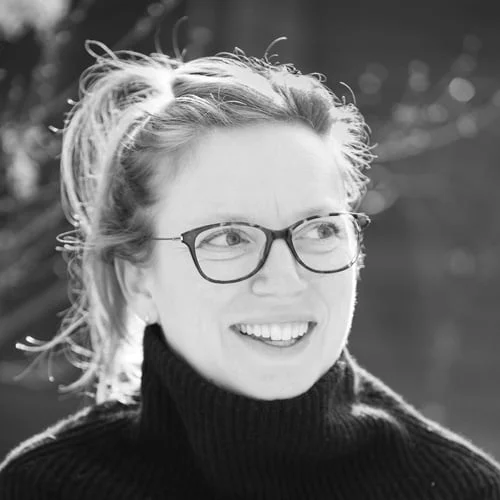

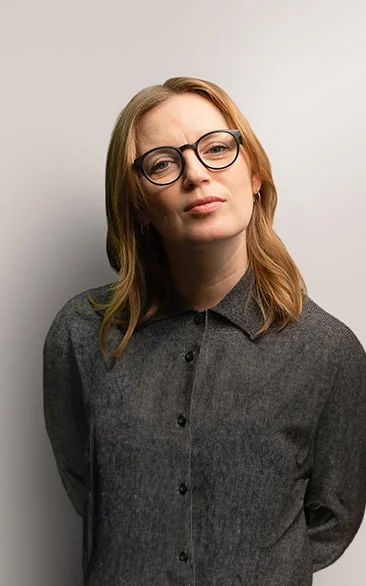
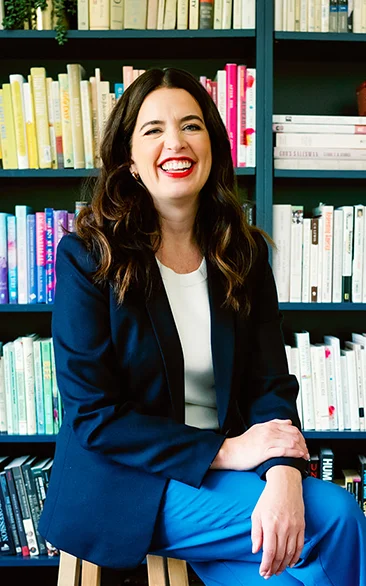








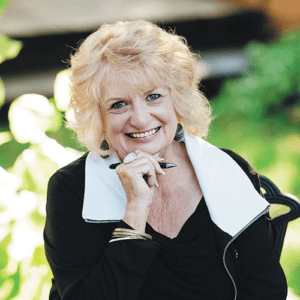
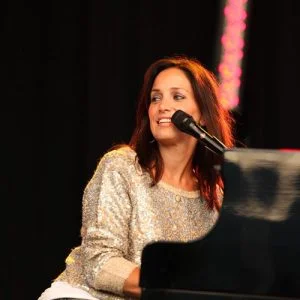
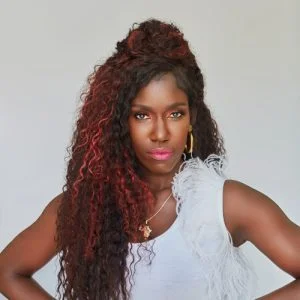

Leave a Reply